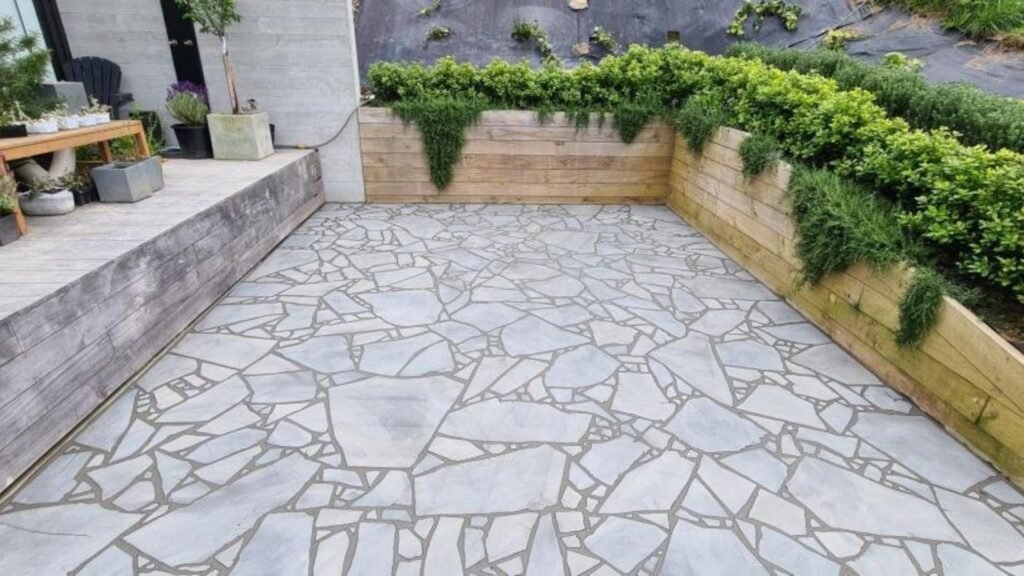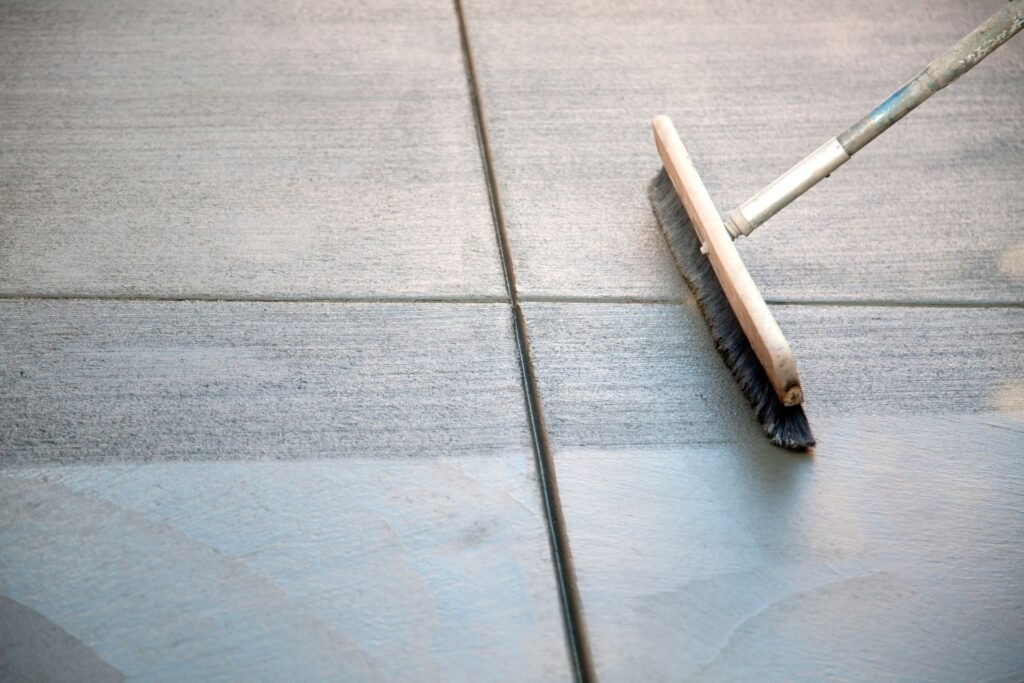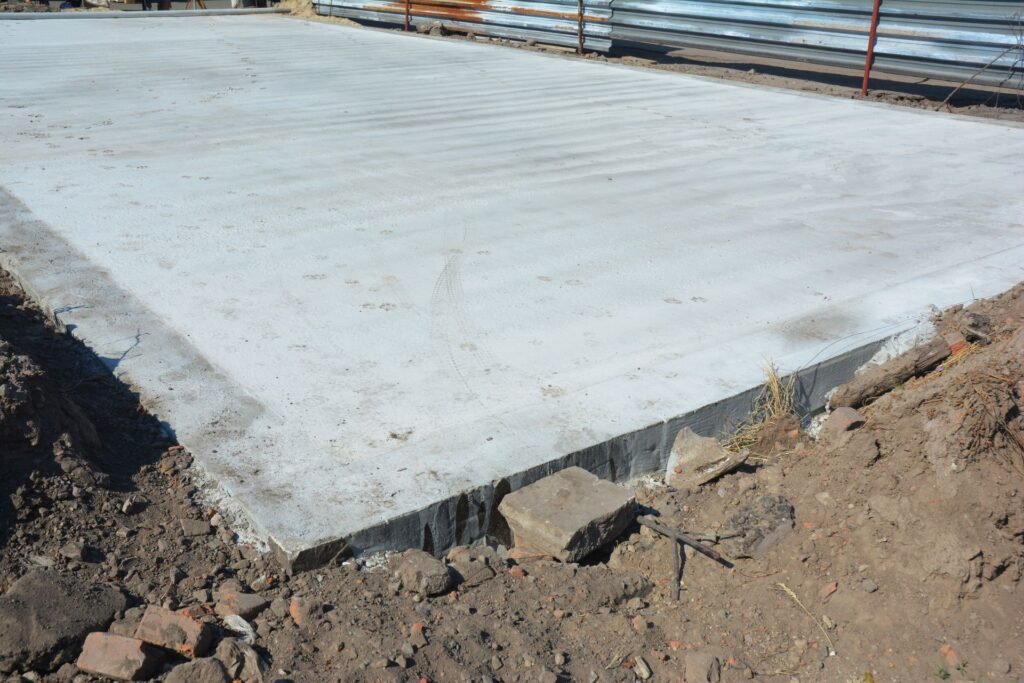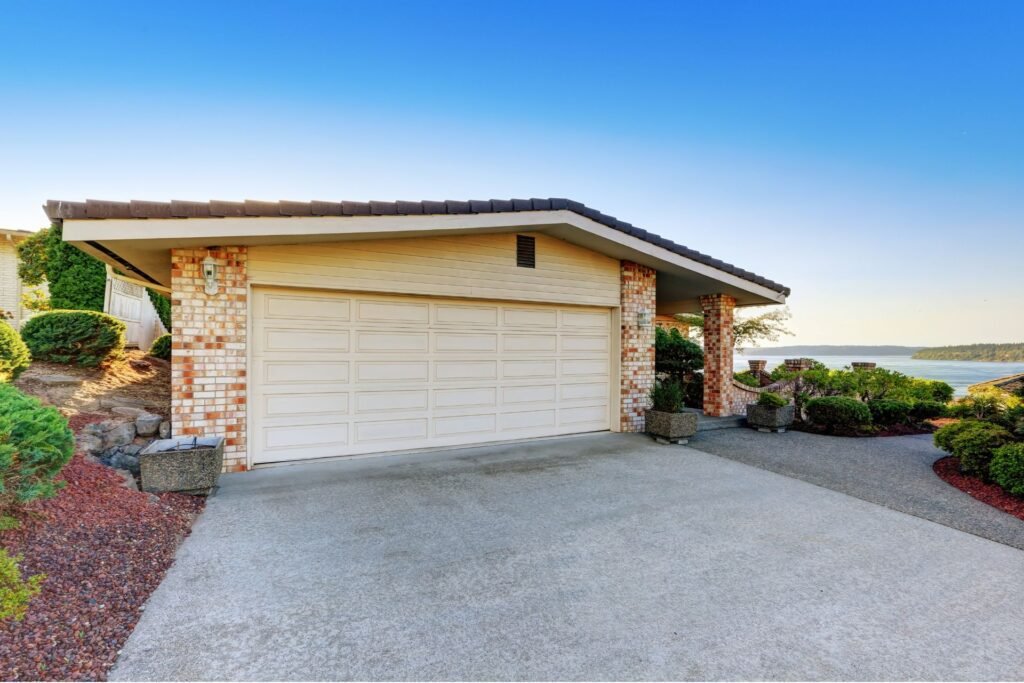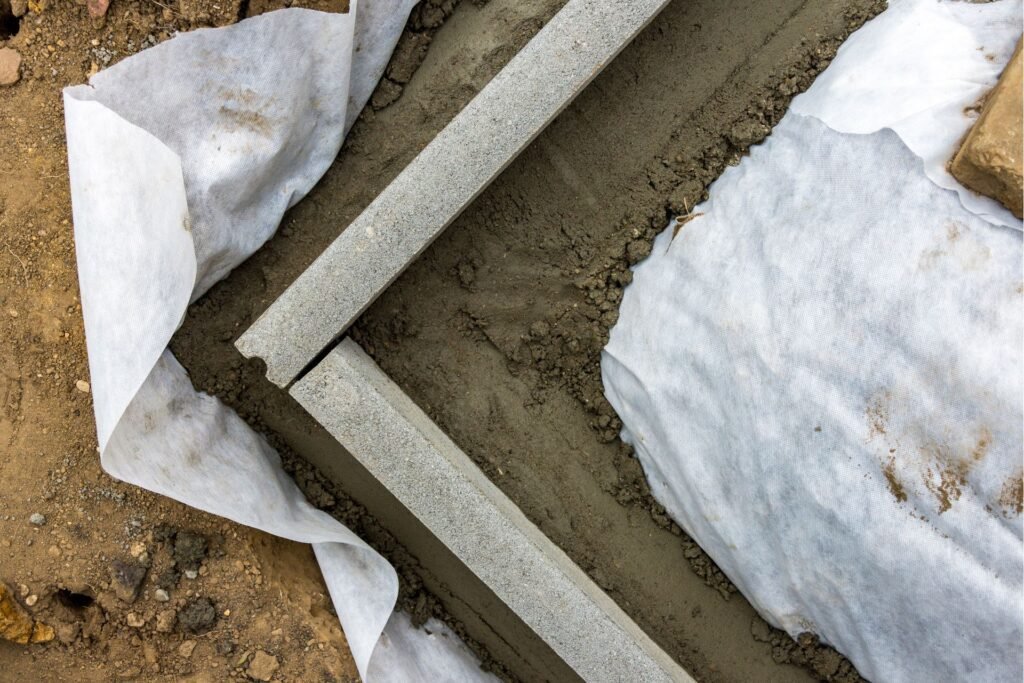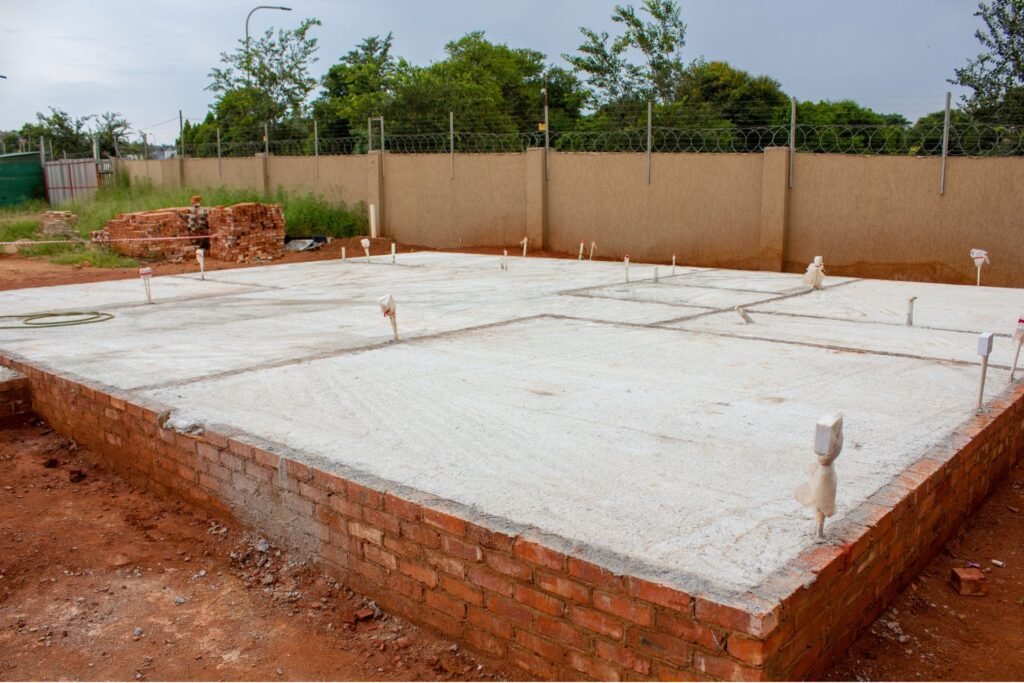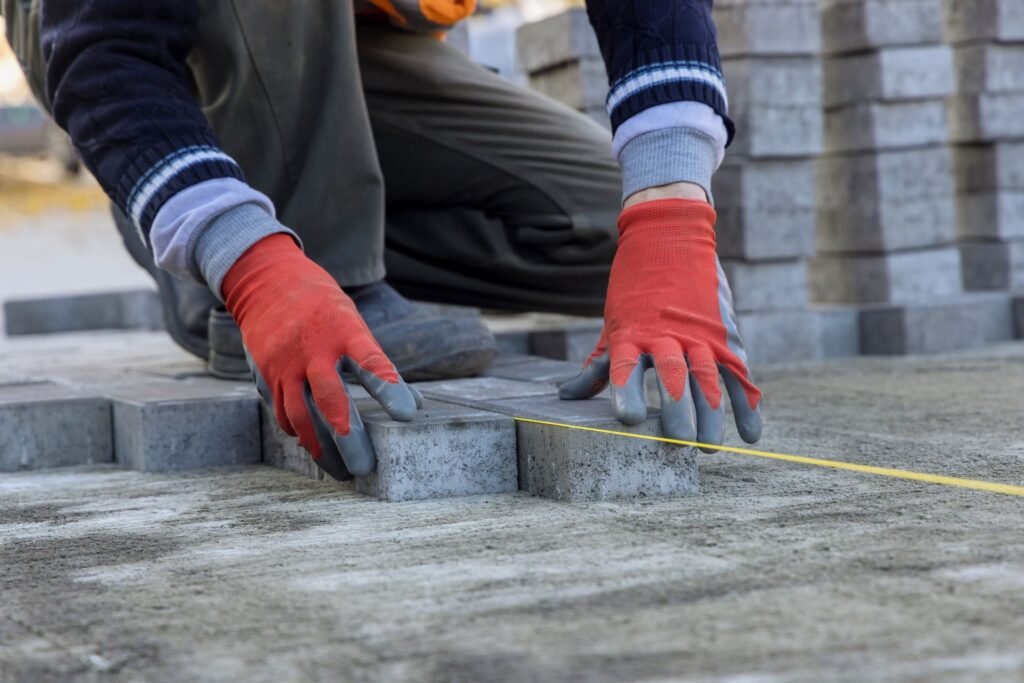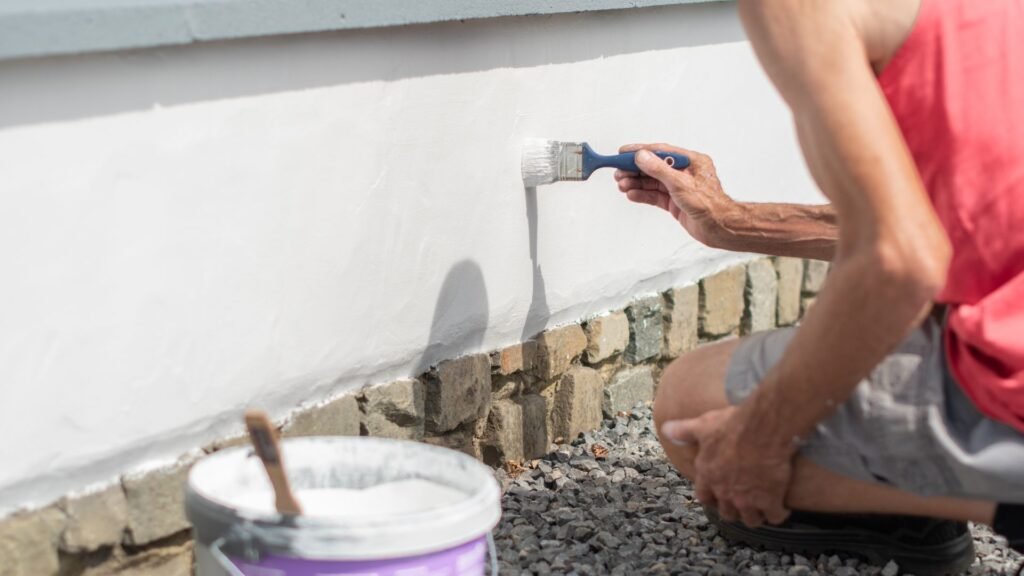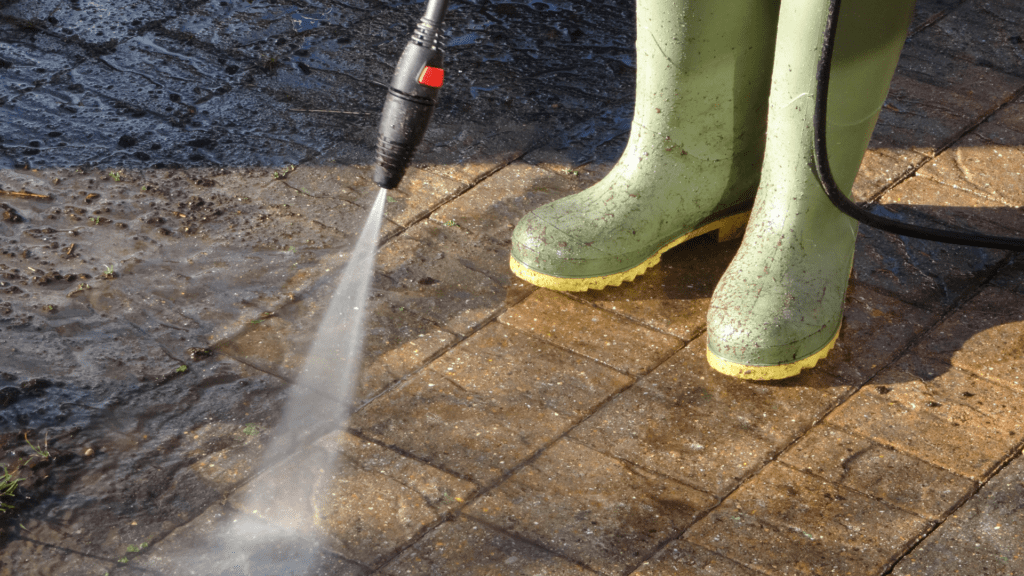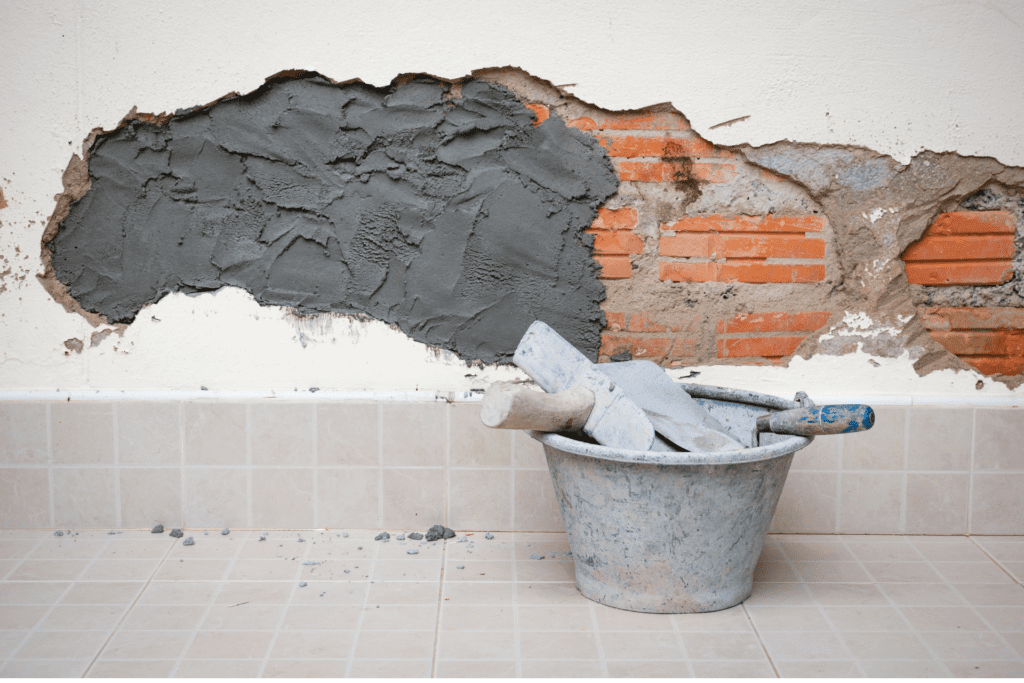Welcome to your go-to guide on paving stones in NZ, where we break down everything you need to know before upgrading your outdoor space. Whether you’re sprucing up a garden path, laying a new driveway, or designing a patio for summer barbecues, paving stones offer a mix of style, durability, and low maintenance that fits perfectly with New Zealand’s lifestyle and climate. In this guide, you’ll learn about the different types of pavers available, how to choose the right one, where to buy them, and what to expect during installation, so you can make confident decisions and avoid common mistakes.
Paving stones NZ are durable, low-maintenance materials used for outdoor areas like patios, driveways, and garden paths. Popular options in New Zealand include concrete, natural stone, and clay pavers, each offering unique styles and benefits suited to the local climate. They’re ideal for creating functional, attractive spaces around your home.
Table of Contents
What Are Paving Stones?
Paving stones are flat, durable building materials used to create solid walking surfaces in outdoor and sometimes indoor areas. They’re often chosen for patios, driveways, garden paths, poolside surrounds, and courtyards because they offer a clean, attractive look while handling daily wear and tear. Whether you’re building a new outdoor entertaining area or replacing an old concrete slab, paving stones are a practical and stylish choice for New Zealand homes.
They come in a variety of shapes, sizes, textures, and colors, giving homeowners the flexibility to match the look of their property. Unlike poured concrete, which can crack over time, paving stones are installed piece by piece, making them easier to repair if needed. If one stone chips or shifts, you can replace it without disturbing the rest of the surface.
Common Materials Used In Paving Stones
If you’re new to buying paving stones, it’s helpful to understand the main materials available. Each type has its own advantages, appearance, and price point:
Concrete Pavers
These are the most common options in NZ due to their affordability and range of styles. Concrete pavers can mimic natural stone and come in many finishes. They’re strong, weather-resistant, and suitable for driveways and patios.
Natural Stone
Natural options like granite, sandstone, or bluestone offer a more premium, timeless look. They vary in color and texture, which adds character to your landscape. Natural stone is often more expensive but is known for its long-lasting quality.
Clay Bricks
Clay pavers are made by baking natural clay and are valued for their rich colors and strength. They don’t fade easily, which makes them a smart choice for walkways and classic garden settings.
Where You’ll See Paving Stones Used
While paving stones are most commonly seen outdoors, some designs are versatile enough for indoor applications as well. Here’s where you’ll typically find them:
Outdoor Areas
Patios, walkways, driveways, and pool surrounds are ideal for paving stones. Their durability and water resistance make them a top choice for NZ’s changing weather.
Indoor Spaces
In more rustic or Mediterranean-style homes, natural stone pavers may also be used indoors, especially in entranceways or sunrooms. These create a seamless flow from inside to outside, especially when used with large sliding doors.
Whether you’re aiming for a modern layout or a classic garden path, paving stones offer both function and visual appeal. They’re not just a surface to walk on, they’re part of the overall design of your home.
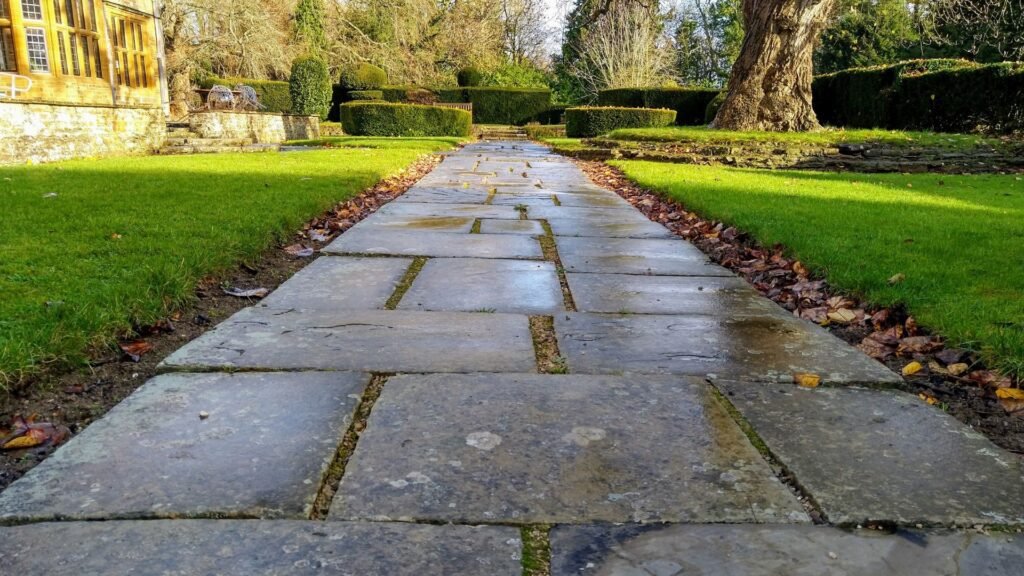
Why Paving Stones Are Popular In NZ
Paving stones are a top choice for outdoor landscaping across New Zealand, and it’s easy to see why. They offer a practical, stylish, and long-lasting solution for homeowners looking to improve their outdoor spaces. Whether you’re in the city or the suburbs, these versatile materials tick all the boxes for Kiwi living. Let’s break down why they’re such a popular option:
Suited To Kiwi Climate And Lifestyle
New Zealand’s weather can be unpredictable, with everything from hot summers to wet winters. Paving stones are built to handle it all. Most are slip-resistant and weather-tolerant, which means they stay safe and functional through all seasons.
If you love spending time outside, hosting BBQs, relaxing in the garden, or just enjoying the view, paving stones help create clean, stable surfaces for everyday living. They’re also perfect for families with kids or pets, offering a durable and easy-to-clean surface that doesn’t get muddy or uneven.
Great For Patios, Driveways, And Garden Paths
Paving stones are incredibly flexible in how and where they can be used. You’ll often see them in:
- Patios: Great for creating level seating areas or entertainment zones
- Driveways: Strong enough to support cars while adding curb appeal
- Garden paths: Easy to install and maintain while guiding foot traffic
The wide range of colors, sizes, and textures means you can find a style that matches your space without compromising function.
Fits Both Modern And Traditional Home Designs
Whether your home has a sleek modern facade or a more classic, traditional look, paving stones can complement the architecture. Smooth concrete or large-format pavers suit modern homes, while rustic natural stones or brick pavers blend well with heritage or cottage-style homes.
Homeowners often choose pavers because they allow for creative layouts, think herringbone, basketweave, or even random patterns. This level of design freedom helps you personalize your outdoor area without major renovations.
Local Sourcing And Sustainability
Many NZ suppliers offer paving stones that are locally made or sourced, reducing the carbon footprint tied to transport. Using homegrown materials also supports local businesses and ensures the pavers are built for local conditions.
Some options, like permeable pavers, also help manage stormwater by letting rain soak through instead of running off. That’s a smart choice for both the environment and long-term property maintenance.
Whether you’re going for practicality, style, or sustainability, paving stones deliver on all fronts, making them a clear favorite for Kiwi homeowners.
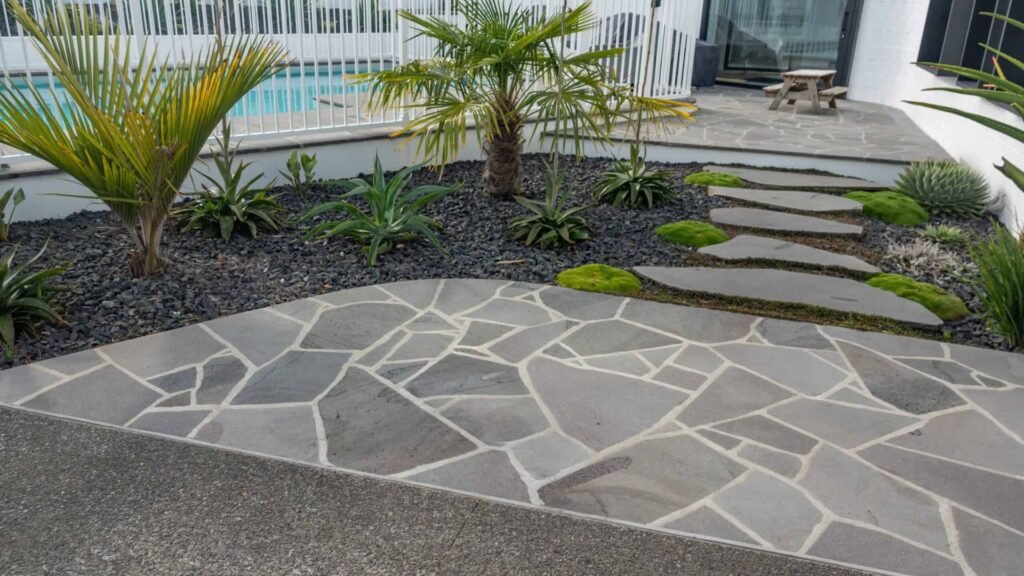
Types Of Paving Stones Available In NZ
Choosing the right paving stones can completely change the look and feel of your outdoor space. Whether you’re designing a garden path, patio, or driveway, understanding the different types of pavers available in New Zealand will help you make a smarter decision. Each material has its strengths, and the best choice often comes down to how you plan to use the space, your local climate, and your budget.
Concrete Pavers
Concrete pavers are one of the most widely used options in New Zealand. They’re affordable, durable, and come in a wide range of colors, shapes, and textures. Because they’re manufactured, it’s easy to find consistent sizing, which makes installation more straightforward, especially for DIY projects.
They’re ideal for driveways, walkways, patios, and pool areas. Many homeowners choose concrete pavers for modern home designs because they can be styled to mimic natural stone or brick without the higher cost.
Pros
- Budget-friendly
- Easy to install
- Available in many designs
- Suitable for both residential and commercial use
Cons
- May fade over time in strong UV exposure
- Can crack under extreme pressure if not installed on a proper base
- Slightly less natural look compared to real stone
Natural Stone (Granite, Bluestone, Sandstone)
Natural stone pavers are a premium choice that add real character to your outdoor space. Each stone has unique textures and colors that create a timeless and organic feel. In New Zealand, popular options include granite, bluestone, and sandstone.
Granite is extremely hard and perfect for high-traffic areas. Bluestone offers a sleek, darker finish, while sandstone brings a warm, earthy tone that blends well with garden settings.
Pros
- High-end appearance
- Long-lasting and weather-resistant
- Adds value to your home
- Each piece is unique
Cons
- More expensive than concrete or clay
- Requires sealing to protect against stains and weather
- Installation is more complex and usually not suitable for DIY
Clay Bricks
Clay brick pavers are a classic choice often seen in heritage-style homes or traditional landscape designs. They offer a warm, rustic look that never goes out of style. Their color doesn’t fade because it’s baked into the material, not applied to the surface.
These are great for courtyards, small patios, garden paths, and decorative borders. They’re also a great choice if you’re after a timeless or vintage feel.
Pros
- Durable and colorfast
- Naturally textured, providing good grip
- Great for decorative patterns (herringbone, basket weave)
- Eco-friendly option
Cons
- Smaller size means longer installation time
- Less design variety compared to concrete
- Can be more costly per square metre than budget concrete pavers
Permeable Pavers
Permeable pavers are designed to let water pass through them, helping reduce surface runoff and improve drainage. They’re especially useful in areas with heavy rainfall or where council regulations require better water management.
These are commonly used in driveways, pathways, and around garden beds. While they’re more popular in commercial settings, they’re becoming a smart choice for eco-conscious Kiwi homeowners.
Pros
- Helps manage stormwater
- Reduces risk of pooling or flooding
- Can be used in council-compliant builds
- Good for garden health if used around planting areas
Cons
- More expensive to install
- Requires specific base layers and professional setup
- Limited color and design options
Tips On Choosing The Right One Based On Space And Budget
When choosing paving stones, consider the space you’re working with and how much wear and tear the area will see. For high-traffic zones like driveways or footpaths, go for something tough like granite or concrete. If it’s a garden path or low-use patio, clay bricks or sandstone might give you the look you want without overbuilding.
Always set a realistic budget, not just for materials but also for base preparation and labor if you’re not going DIY. Remember, a cheaper paver poorly installed won’t last as long as a slightly more expensive one done right.
Ask yourself
- Do I want a modern or classic look?
- Will the surface be exposed to lots of sun or rain?
- Am I installing it myself or hiring a professional?
Choosing the right paving stones isn’t just about the look. It’s about performance, maintenance, and making sure your investment pays off over the years. Take your time to compare options and don’t hesitate to ask suppliers for samples or advice. A well-chosen paver will add both function and beauty to your outdoor space.
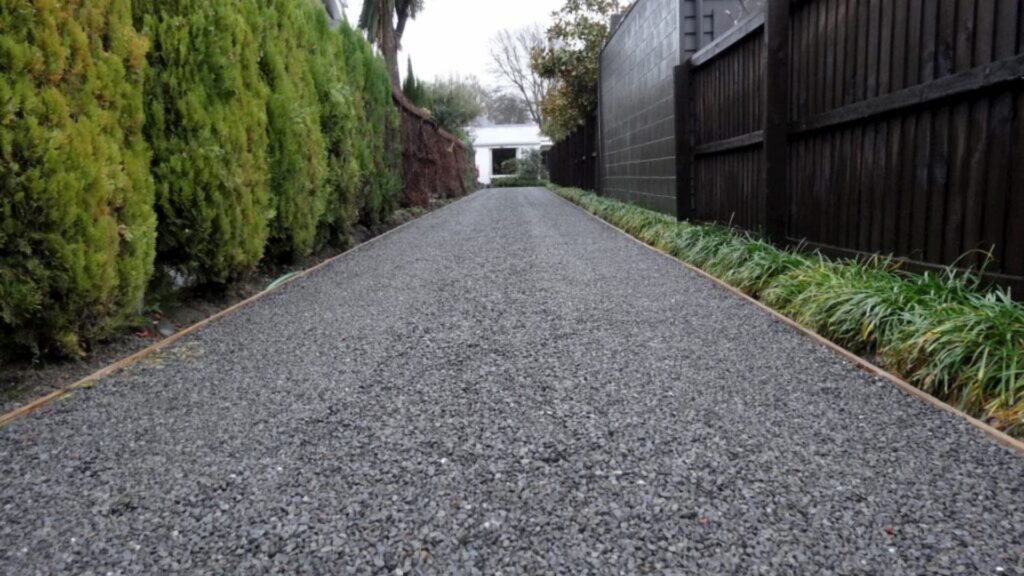
Design Ideas For NZ Homes
Paving stones are more than just practical, they can completely transform the way your outdoor space looks and feels. Whether you’re working with a small backyard or a large section, there’s a paving layout that can match your home’s style and purpose. Here are some popular design ideas for New Zealand homes that combine function with visual appeal.
Garden Paths And Stepping Stones
A garden path made from paving stones adds structure and charm to any backyard. You can go with evenly spaced stepping stones through grass or create a curved path using small-format pavers. Both options offer a natural flow while guiding people through your outdoor area. Natural stone pavers like bluestone or slate work especially well in NZ gardens because they blend with native plants and landscaping styles.
To make the space feel more inviting, consider lining the path with low shrubs or solar lights. For added texture, use a mix of stone shapes or add gravel between the gaps. This also improves drainage and helps prevent weed growth.
Outdoor Dining Areas And Patios
Outdoor dining is a big part of Kiwi living. Whether it’s weekend barbecues or relaxed evening meals, a paved patio provides a clean, stable surface that’s easy to maintain. Concrete pavers are a top choice here, they’re durable, cost-effective, and available in multiple colours and textures.
If you want to add warmth and character, clay pavers or tumbled stone are great alternatives. They work well in both contemporary and rustic settings. You can go with a herringbone or basketweave pattern to make the space feel more custom. To create zones, try using different paver styles or borders to separate the dining area from the rest of the garden.
Driveways And Entrances
Your driveway and front entry are the first things people notice. A well-paved entrance sets the tone for the entire home. Paving stones give you more design flexibility than plain concrete. You can choose between large-format pavers for a modern look or cobblestone-style bricks for something more classic.
Because driveways carry heavy weight, it’s important to choose pavers rated for vehicle use. Clay bricks and thick concrete pavers hold up well under pressure and resist cracking. For added curb appeal, border the driveway with contrasting stones or plant a narrow strip of grass between paver lanes.
Pool Surrounds
Pool areas need paving that’s safe, slip-resistant, and cool underfoot. Textured concrete, travertine, and exposed aggregate are all popular for pool surrounds in NZ. These materials are not only practical but also elevate the space visually.
Lighter-coloured pavers are ideal because they reflect heat and stay cooler during summer. Layout options include simple straight lines or curved edges that follow the pool shape. Add interest by using a mix of paver sizes or creating a mosaic-style design. Drainage is crucial here, so the paving must be sloped slightly to avoid water pooling.
Add Images Or Layout Suggestions
If you’re publishing this content online, visuals are key. Include photos of real paving projects, sketches of layout ideas, or even 3D renderings. A simple image showing different paving patterns, like running bond, herringbone, or stack bond, can help readers decide what fits their space best.
Interactive tools or sliders that let readers see before-and-after designs work well too. If possible, showcase examples specific to New Zealand homes, especially those with native plants, timber fences, and coastal or rural views. This helps build trust and shows that your advice is relevant to their environment.
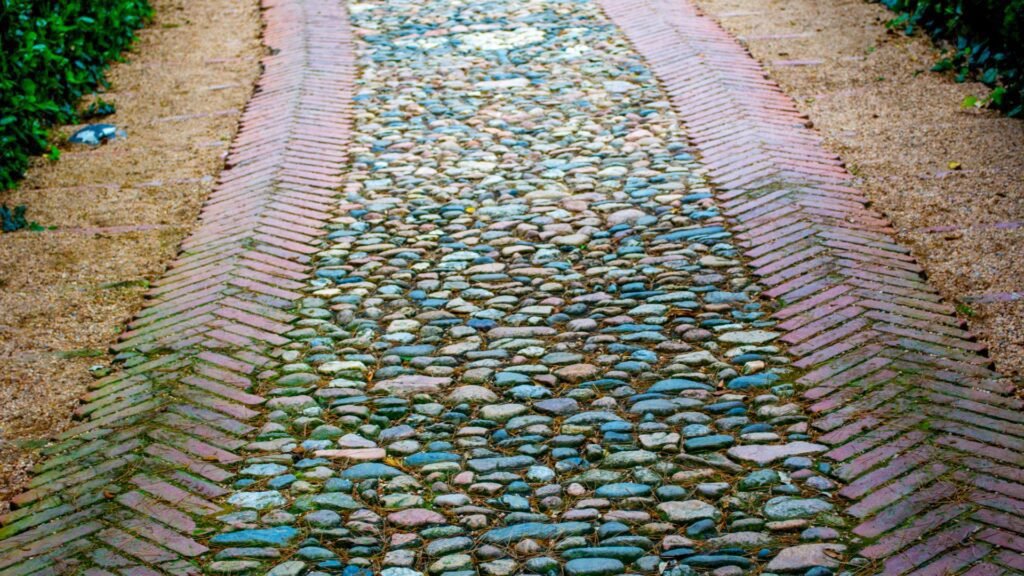
How To Choose The Right Paving Stones
Choosing the right paving stones for your outdoor space isn’t just about looks. It’s also about durability, safety, and how well they match your needs and lifestyle. Whether you’re building a new patio, a garden path, or a driveway, getting this decision right can save you money and effort down the line. Below are the key factors every New Zealand homeowner should consider when shopping for paving stones.
Climate And Weather Resistance
New Zealand’s weather can be unpredictable, with plenty of rain, UV exposure, and even frost in colder areas. Your paving stones need to handle it all. Some materials, like concrete and natural stone, are better suited to outdoor conditions. Look for products that are specifically rated for frost resistance and UV stability. If you live in a high-rainfall area, permeable pavers are a great option because they help with drainage and reduce pooling.
Surface Texture And Slip Safety
Safety should always be part of your decision, especially for areas that get wet like pool surrounds or garden paths. Smooth pavers might look sleek but can become slippery in the rain. Textured surfaces or those with a natural grain provide more grip underfoot. If children or elderly family members use the space regularly, this is even more important. Always check the slip resistance rating before buying.
Matching Colors To Home Exteriors
Paving stones come in a wide range of colors, from light greys and browns to deep charcoals and warm reds. The color you choose should complement your home’s exterior, fencing, and landscaping. Lighter shades can make small spaces feel larger, while darker tones often create a bold contrast with greenery. Try to get physical samples and view them in natural light to see how they blend with your surroundings.
Maintenance Levels
Some paving materials are easier to maintain than others. Concrete pavers are generally low-maintenance and only need occasional cleaning. Natural stones like sandstone or limestone may require sealing to prevent staining or weathering. If you’re someone who prefers a “set it and forget it” solution, choose materials that don’t need regular sealing or heavy upkeep. Also, consider weed control, some jointing sands help reduce weed growth between the pavers.
Budget And Longevity
Budget plays a major role in material selection. Concrete pavers are cost-effective and durable, making them a popular choice for driveways and patios. Natural stones tend to be more expensive but offer unique textures and a high-end finish. When comparing costs, don’t just look at the price per square metre. Factor in installation, maintenance, and how long the pavers are expected to last. A slightly higher upfront cost might mean fewer repairs or replacements in the long run.
Diy Vs Professional Installation
Laying paving stones might seem straightforward, but proper installation takes skill, especially for large areas or complex patterns. DIY can work for small paths or garden features, but driveways and patios often need a professional to ensure correct base preparation and drainage. Poor installation can lead to sinking, uneven surfaces, or water buildup. If you’re unsure, get quotes from experienced installers and weigh the cost against the time and tools you’d need for DIY.
Choosing paving stones is about more than just picking a color or pattern. By thinking through these factors, climate, safety, style, upkeep, budget, and installation, you’ll end up with a finished project that looks great and lasts for years. Take your time, ask questions, and always compare options before making a final decision.
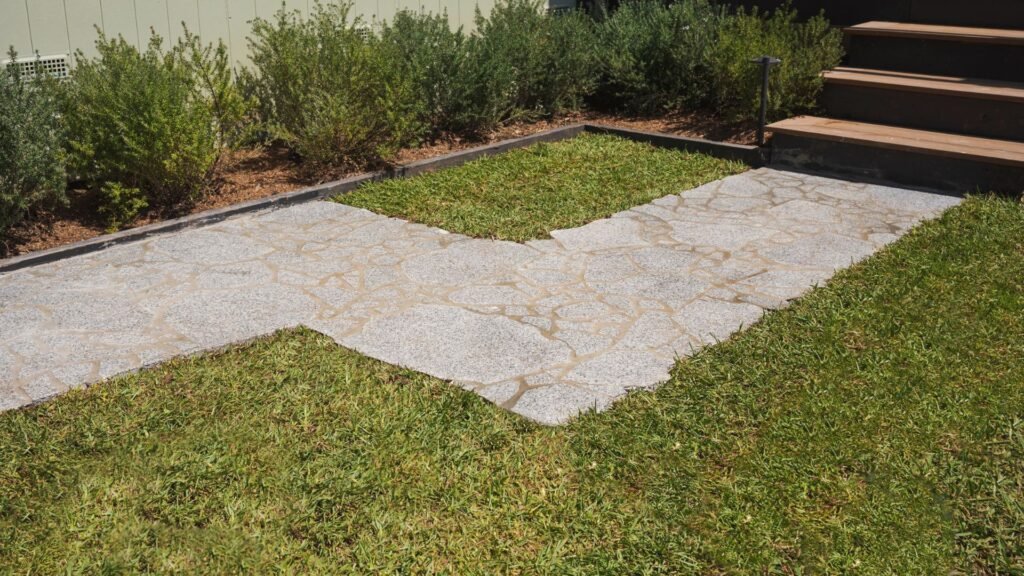
Where To Buy Paving Stones In NZ
Finding the right place to buy paving stones in NZ can make a big difference in your overall project experience, from price and product quality to after-sales support and delivery. Whether you’re planning a small garden path or a large driveway, where you buy your materials matters just as much as what you choose.
Local Landscaping Stores And Suppliers
Your first stop should be local landscaping yards or building supply stores. These businesses usually offer a wide range of paving stones, including concrete, clay, and natural stone options. Shopping locally gives you the chance to see the products up close, feel the texture, and compare sizes and finishes before making a decision.
Another benefit of going local is personalized advice. Staff are often familiar with the materials that perform best in your area, especially when it comes to handling New Zealand’s varying weather conditions. You can also ask about installation tips, maintenance guidance, and local trends.
Many suppliers also carry related items like gravel, sand, edging, and sealants, which means you can get everything you need in one place.
Buying In Bulk Vs Small Quantities
Before making a purchase, consider how much material your project will require. If you’re covering a large area like a patio or driveway, buying in bulk is usually more cost-effective. Bulk orders often qualify for discounts and free or reduced delivery rates. Just make sure to confirm the return policy in case you overestimate.
For smaller projects or decorative accents, smaller quantities may be enough. You can often buy by the square metre or even per paver, depending on the store. While the per-unit cost may be slightly higher, it helps avoid waste and clutter.
Always calculate your total area and allow extra for cuts, breakages, or future repairs. A common rule is to order 5–10% more than the exact measurement.
Importance Of Checking Product Reviews
Don’t skip this step. Whether you’re buying online or from a physical store, always read customer reviews. These can give you real-world insight into the quality, color consistency, durability, and overall satisfaction of previous buyers.
Look for patterns. If multiple people mention chipping, poor color retention, or difficulty during installation, it’s a red flag. On the other hand, if reviews consistently mention product reliability or helpful staff, it’s a good sign you’re making the right choice.
Google reviews, Facebook pages, and even home improvement forums can be useful sources of honest feedback. It’s also worth checking if the supplier responds to negative reviews, this shows how they handle customer service.
Ask For Samples If Available
If you’re unsure about which style or material to choose, ask the supplier if they offer samples. Many do, especially for premium or large-scale purchases. Holding a sample in your hands helps you assess color, weight, surface finish, and how it looks in your actual outdoor space.
Try placing the sample in different lighting, sun, shade, and overcast skies, to see how it changes throughout the day. This can help you avoid surprises once everything is installed.
Samples also help compare different options side by side, especially when deciding between natural stone and concrete lookalikes. Investing a little time upfront with samples can prevent costly regrets later.
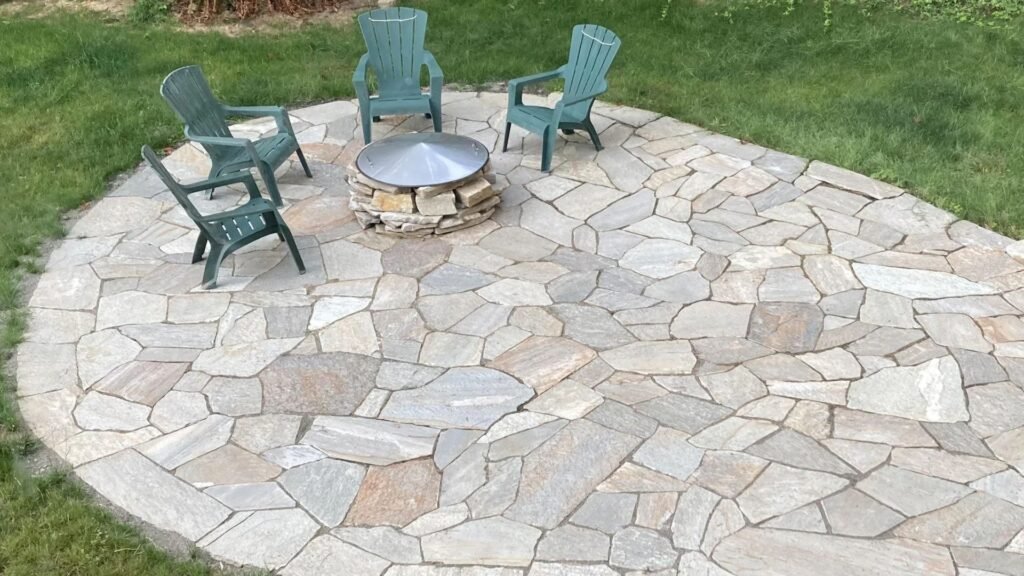
Installation: What To Expect
Installing paving stones in New Zealand can be simple or complex, depending on your space, goals, and skill level. Whether you’re planning a weekend DIY project or hiring a professional, understanding the process will save you time, money, and frustration.
DIY Overview: Basic Steps, Tools, And Effort Required
If you’re tackling a small area like a garden path or stepping stones, DIY installation is possible with the right preparation. Here’s what the process usually involves:
- Measure And Mark The Area: Use spray paint or stakes and string to outline your project space.
- Excavate The Ground: Dig down 100–200mm depending on your chosen stone and local soil type.
- Lay A Base Layer: Add crushed gravel (around 100mm) and compact it using a plate compactor or hand tamper.
- Add Bedding Sand: Spread 20–30mm of sharp sand to help level the pavers and lock them in place.
- Place The Pavers: Lay the paving stones in your desired pattern, starting from one corner and working outward.
- Fill The Joints: Use sand or jointing material to fill the gaps between stones and sweep it into place.
- Compact And Set: Gently compact the surface again to ensure everything is locked in and level.
Tools You’ll Need
Tape measure, shovel, wheelbarrow, rake, rubber mallet, plate compactor, level, and broom.
- Skill Level: Basic to intermediate, depending on the complexity of the layout.
- Effort Required: Expect 1–2 days of labor for a small patio or pathway if you’re doing it solo.
Why Some Jobs Are Better Left To Professionals
Not every paving project is suitable for DIY. If you’re working with:
- Large Driveways Or Sloped Terrain
- Drainage Requirements
- Custom Patterns Or Heavy Stone Materials
Then hiring a professional installer is worth the investment. A poorly laid base can cause uneven surfaces, drainage problems, or shifting pavers after just a few months. Professionals ensure long-term durability and can often complete the job faster, especially when it requires excavation, machinery, or precision cutting.
Timeline For Different Project Types
Project timelines vary based on size and complexity.
- Small Garden Path Or Patio (DIY): 1–3 Days
- Medium Outdoor Living Area (Pro Install): 3–5 Days
- Large Driveway Or Pool Surround: 1–2 Weeks
Weather, ground conditions, and material availability can also affect your timeline. Always plan for an extra buffer day or two, especially during the rainy season.
Cost Estimates (Rough NZD Ranges)
Costs depend on material, project size, and who’s doing the work. Here’s a general guide:
DIY Materials Only
- Concrete Pavers: $40–$70/m²
- Natural Stone: $80–$150/m²
- Gravel/sand Base And Jointing Sand: $10–$25/m²
- Tool Hire (Compactor, Saw): $80–$150/day
Professional Installation
- Full Service (Materials + Labor): $150–$250/m²
- Prep Work Only (Base Install): $50–$100/m²
Always get 2–3 quotes from local paving contractors to compare pricing. Be sure to ask what’s included, some installers provide full clean-up, sealing, and even design assistance, while others charge extra for those services.
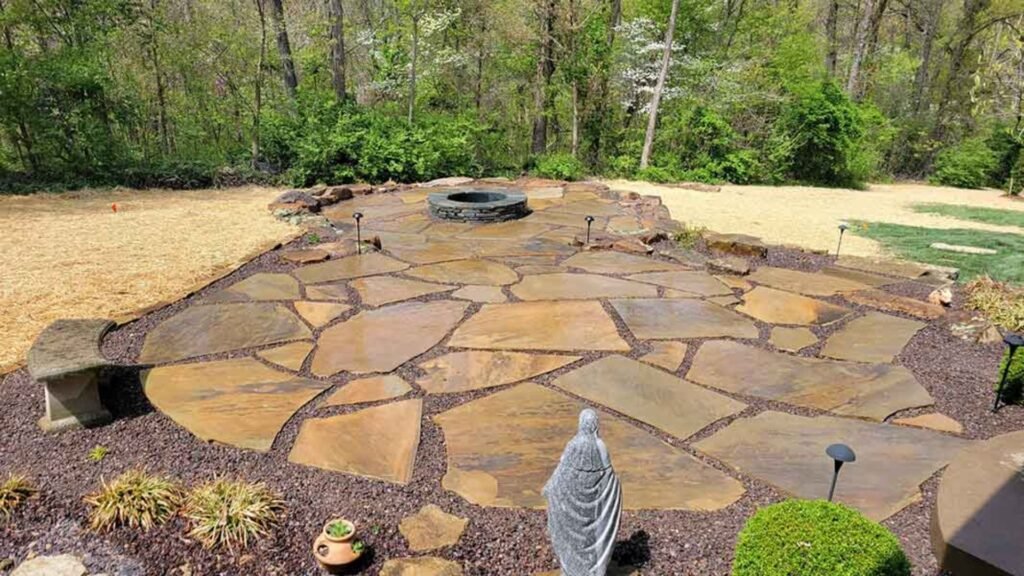
Caring For Your Paving Stones
Keeping your paving stones in good shape doesn’t take much effort, but it does require a little consistency. Whether you’ve chosen concrete, natural stone, or clay pavers, the way you care for them directly affects how they look and how long they last. Here’s how you can make sure your paved areas stay clean, safe, and looking their best year-round:
Cleaning Tips
Regular cleaning helps prevent dirt, stains, and debris from building up on your paving stones. For most outdoor spaces, a simple sweep with a stiff broom every few days is enough to keep the surface clear of leaves, dust, and grime. If you notice surface stains, like oil, bird droppings, or mildew, you can use a mild detergent mixed with warm water and scrub with a brush.
For a deeper clean, a pressure washer can be used occasionally. Be careful not to use too much pressure, especially on older or more delicate pavers, as it may damage the surface or wash out joint sand.
Try to avoid harsh chemicals or bleach-based cleaners. These can fade the color of your pavers and may harm surrounding plants.
Preventing Weeds And Moss
Weeds and moss tend to grow in the joints between paving stones, especially if the area gets a lot of shade or moisture. The best way to prevent this is by maintaining a clean surface and regularly sweeping loose debris away. This reduces the organic matter that helps weeds and moss take hold.
You can also use a joint stabilizing sand or polymeric sand when installing the pavers. These materials harden slightly after watering and make it harder for weeds to grow between the joints.
If weeds do appear, pull them out by hand or use a gentle, plant-safe weed spray. Avoid boiling water or strong vinegar solutions, they can damage the pavers and nearby plants if overused.
Sealing (When Needed And Why)
Sealing your paving stones helps protect them from stains, water damage, and fading caused by sunlight. Sealants create a protective layer on top of the stone, which can also make cleaning easier and enhance the natural color of the pavers.
Sealing is especially useful for high-traffic areas like driveways or patios and for natural stone pavers, which can be more porous. Most sealers last around two to five years, depending on foot traffic and weather exposure.
If you’re unsure whether your pavers need sealing, sprinkle a bit of water on the surface. If the water soaks in quickly, it may be time to reseal. If it beads up, the seal is likely still doing its job.
Make sure the surface is clean and dry before applying any sealer. Always follow the product instructions and test on a small area first to check for any changes in color or finish.
Dealing With Cracks Or Shifting Over Time
Over time, paving stones can settle, shift, or crack, especially if the base underneath wasn’t properly prepared. The good news is, individual pavers can usually be lifted and reset without tearing up the entire surface.
If you notice a sunken area or uneven surface, remove the affected pavers, level and compact the base underneath, then reinstall the stones. For cracks, inspect whether it’s just surface-level or a sign of a deeper issue like drainage problems.
Fixing small issues early prevents them from becoming larger, more expensive problems later on. Regular inspections, especially after heavy rain or seasonal changes, help you spot and fix movement or wear early.
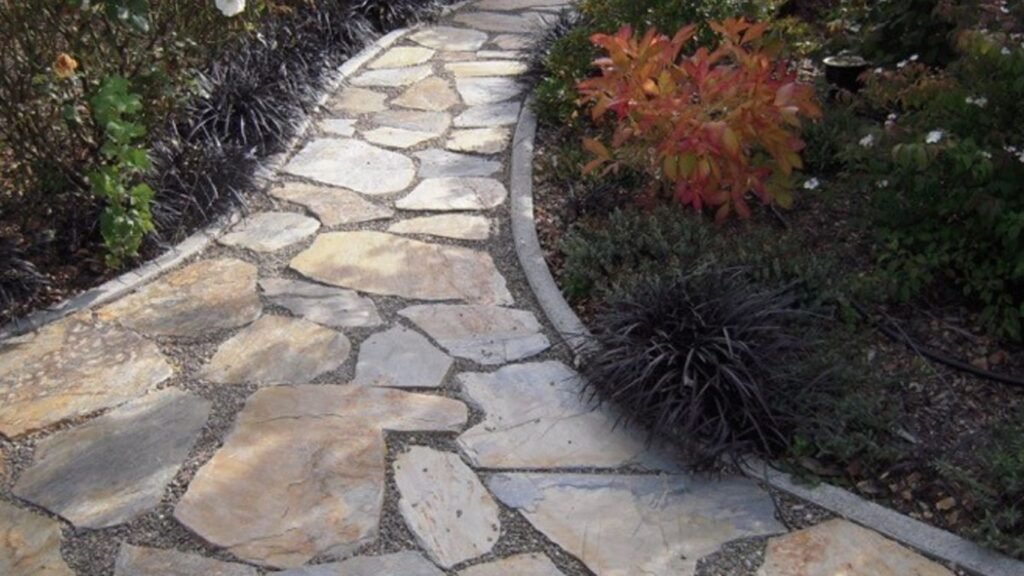
Common Mistakes To Avoid
Choosing paving stones for your outdoor space is exciting, but rushing into it without the right plan can lead to costly mistakes. Whether you’re working on a driveway, patio, or garden path, avoiding the following errors will save you time, money, and frustration in the long run.
Skipping The Base Preparation
One of the most common, and damaging, mistakes is skipping proper base preparation. Many homeowners think they can lay paving stones directly on soil or grass. This leads to uneven surfaces, sinking, and cracking over time.
For a solid foundation, always remove topsoil and dig down to a suitable depth. Then lay a compacted gravel base followed by a layer of sharp sand. This process helps with load-bearing, leveling, and long-term durability. Cutting corners here may look fine at first, but you’ll likely end up redoing the whole job within a year or two.
Choosing The Wrong Material For High-Traffic Areas
Not all paving stones are created equal. Some look great but won’t hold up under constant pressure. For example, soft natural stones may chip or wear quickly if used for driveways or high-footfall areas.
Before you choose a material, think about how the area will be used. Concrete pavers are often best for driveways due to their strength, while textured or slip-resistant stones are safer for wet areas like pool surrounds. Always match the material to the purpose to avoid disappointment later.
Not Considering Drainage
Ignoring drainage is a recipe for problems, especially in New Zealand’s climate, where heavy rain is common. Without proper slope and runoff planning, water can pool on the surface or seep under the stones, loosening your base layer.
Make sure your paved area has a slight slope, usually around 1–2%, to guide water away from your home. If you’re laying pavers near your house, drainage channels or soak pits may also be needed. Think of drainage not as an add-on but as a core part of your layout.
Poor Layout Or Lack Of A Pattern Plan
Paving might look like a simple puzzle, but laying stones without a plan can lead to awkward gaps, misalignment, and a messy finish. Even if you’re working with a basic square or rectangle, you still need a layout strategy.
Start by sketching your area and deciding on a pattern. Common choices include stretcher bond, herringbone, and basket weave. These aren’t just about looks, they help distribute weight and prevent movement. Use string lines or chalk to guide placement and always dry-lay a few rows first to see how everything fits before locking it in.
Avoiding these four mistakes will not only protect your investment but also help you achieve a professional result that lasts for years. Take your time, plan carefully, and don’t hesitate to ask questions when shopping for materials or hiring an installer. Every smart step you take now will pay off with a stronger, more beautiful space.
Not sure where to start? Our team can help you choose the perfect paving stones for your home. Click here to learn more.
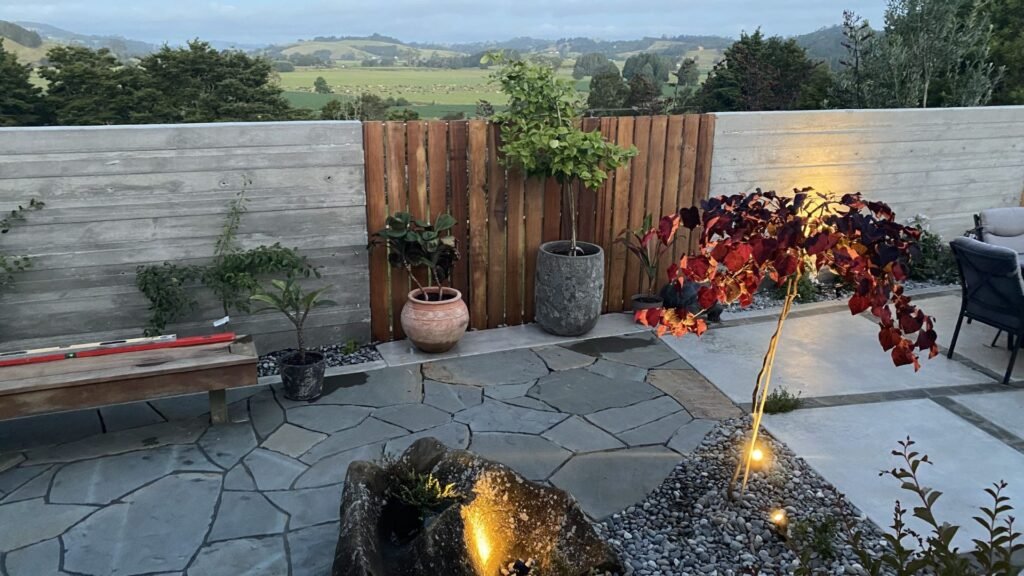
FAQS: About Paving Stones In NZ
What are paving stones used for in NZ homes?
Paving stones are commonly used for outdoor areas such as patios, garden paths, driveways, pool surrounds, and courtyards. They add visual appeal while offering a durable, low-maintenance surface that suits the Kiwi lifestyle.
What are the most popular types of paving stones in New Zealand?
Concrete pavers, natural stones like granite and bluestone, clay bricks, and permeable pavers are all popular choices in NZ. Each type has different textures, colors, and durability levels depending on the project needs.
Are paving stones suitable for New Zealand’s weather conditions?
Yes. Most paving stones sold in NZ are designed to handle local conditions, including rain, frost, and UV exposure. Proper installation and drainage planning help them last longer and perform better in any season.
How long do paving stones last?
When properly installed and maintained, paving stones can last 20 to 30 years or more. Their lifespan depends on the material, the quality of the base preparation, and regular upkeep like cleaning and sealing.
Can I install paving stones myself, or should I hire a professional?
DIY installation is possible for small projects like garden paths, especially with basic tools and proper preparation. However, larger areas like driveways or patios often require professional installers to ensure durability and proper drainage.
Do paving stones need regular maintenance?
Maintenance is minimal. Routine sweeping, occasional washing, and resealing every few years (if needed) keep the surface looking clean. Weed control between joints is also recommended, especially for sand-set installations.
Are paving stones slippery when wet?
Textured or rough-surface pavers are designed to provide grip, making them safer in wet conditions. For areas around pools or in high-moisture regions, always choose non-slip finishes rated for outdoor use.
How much do paving stones cost in NZ?
Prices vary by material and supplier. Concrete pavers are typically the most affordable, starting around $40–$70 per square metre. Natural stones and clay pavers may range from $80 to $150+ per square metre, excluding installation costs.
Can I lay paving stones directly on soil or grass?
No. A stable base is crucial. Paving stones need to be laid on a compacted gravel or sand base to prevent shifting, sinking, or weed growth. Skipping base preparation is one of the most common installation mistakes.
Where can I buy paving stones in NZ?
You can find paving stones at local landscaping suppliers, garden centres, hardware stores, or specialty paving retailers. Some companies also offer delivery and installation services, so it’s worth getting quotes from a few sources.
Conclusion
Before you invest in paving stones for your outdoor project, take a few practical steps to avoid future headaches and extra costs. Start by measuring your space carefully to ensure you buy the right quantity and avoid over- or under-ordering. Planning your layout in advance will help you visualize the final result and spot any issues early, such as awkward gaps or poor drainage. It also makes it easier to communicate your vision to suppliers or contractors. Always compare quotes from different paving stone suppliers and professional installers, as prices and services can vary. Don’t rush into the cheapest option, what looks affordable now might require more repairs or replacement later. Quality materials and experienced installation are often worth the extra cost upfront for long-term value and peace of mind.
About the Author:
Mike Veail is a recognized digital marketing expert with over 6 years of experience in helping tradespeople and small businesses thrive online. A former quantity surveyor, Mike combines deep industry knowledge with hands-on expertise in SEO and Google Ads. His marketing strategies are tailored to the specific needs of the trades sector, helping businesses increase visibility and generate more leads through proven, ethical methods.
Mike has successfully partnered with numerous companies, establishing a track record of delivering measurable results. His work has been featured across various platforms that showcase his expertise in lead generation and online marketing for the trades sector.
Learn more about Mike's experience and services at https://theleadguy.online or follow him on social media:

